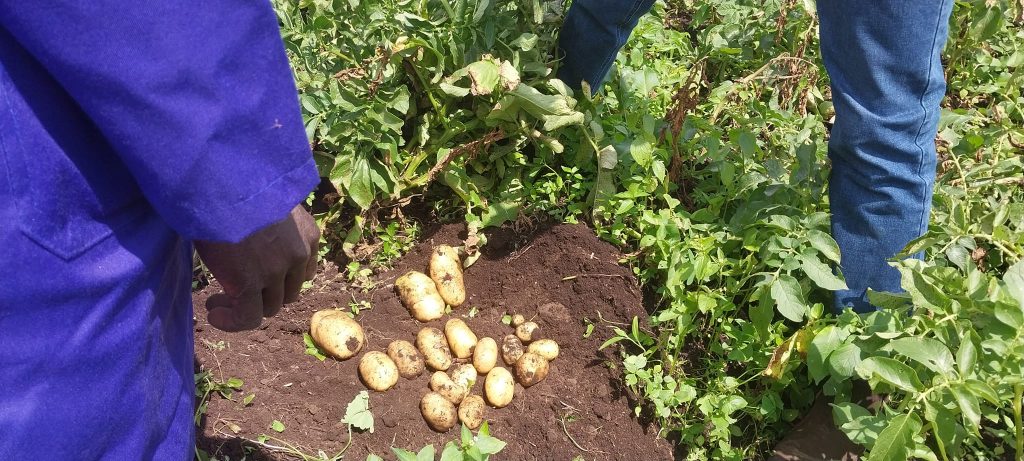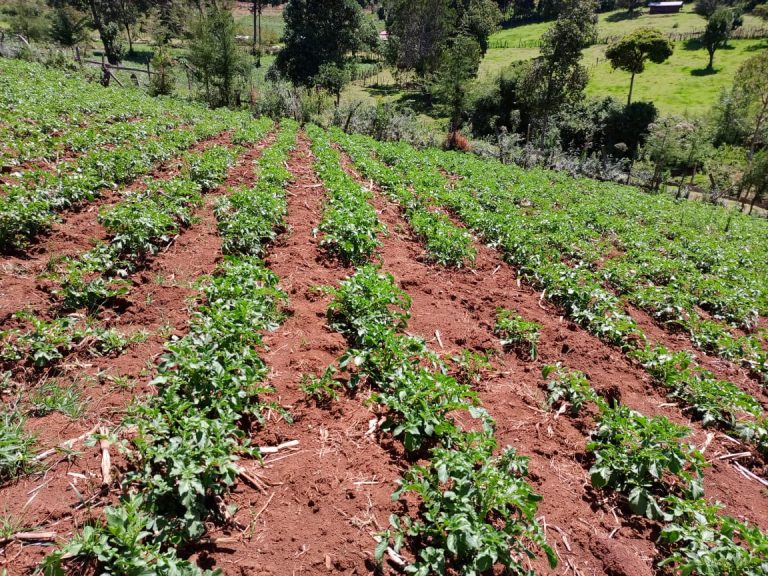Shangi Potato Farming In Kenya
In the fertile highlands of Kenya, a unique variety of potatoes has taken root, capturing the attention of farmers and consumers alike. The shangi potato, a resilient and flavorful cultivar, has emerged as a valuable crop, offering not only a promising source of income but also a path towards food security and agricultural resilience in the face of climate change.
Shangi potatoes have evolved from being a subsistence crop to a commercially viable agricultural enterprise, contributing to the livelihoods of many smallholder farmers in the region.
Unique Characteristics of Shangi Potatoes:
Shangi potatoes are distinguished by their distinctively creamy texture, rich flavor, and ability to retain their shape when cooked. They are typically oval-shaped with smooth, thin skins and creamy-white flesh.
The unique taste and texture of Shangi potatoes make them highly sought after in both local and international markets, commanding premium prices compared to other potato varieties.
The Shangi potato variety is popular in Kenya for several reasons:
- Quick Maturity: Shangi potatoes can be harvested within 90-100 days after planting, making them ideal for farmers looking to maximize yields by planting multiple seasons per year.
- Multi-purpose Use: While Shangi may not be the best for specific uses like chipping or mashing, it is preferred by buyers in the market, leading to its continued popularity among farmers.
- High Yield Potential: With proper care and management, potatoes can yield a high volume of crops per acre, offering good returns for farmers. On average, shangi potato yields typically range from 5 to 10 tons per acre.
- Market Availability: Shangi holds a significant market share and is favored by farmers due to its versatility for various purposes like chips, crisps, and home-cooking.
- Minimal Dormancy: Shangi is known for its minimal dormancy, allowing farmers to replant it within three weeks, a flexibility not found in other potato varieties.
- Monopolistic Forces: Shangi’s dominance in the market and farms, coupled with challenges in finding buyers for other varieties, leads many farmers to continue planting Shangi despite.
Despite its popularity, concerns have been raised about declining yields and susceptibility to diseases like Potato Cyst Nematode (PCN) in some regions like Nyandarua and Nakuru Counties.
Farmers are advised to consider crop rotation and explore new varieties to ensure sustainable potato farming practices and mitigate disease risks

Cultivation Practices:
Shangi potato farming in Kenya follows a set of agronomic practices tailored to the specific requirements of this variety. The cultivation process typically begins with land preparation, including plowing, harrowing, and leveling to create a suitable seedbed.
Shangi potatoes are usually propagated using certified seeds obtained from reputable sources to ensure quality and disease-free planting material.
Planting is usually done during the rainy season, although irrigation may be employed in areas with reliable water sources. Farmers employ techniques such as ridging and furrowing to optimize soil moisture retention and improve drainage.
Regular monitoring for pests and diseases, coupled with timely interventions, helps maintain crop health and maximize yields.
Harvesting of Shangi potatoes is usually done when the tubers reach maturity, typically around three to four months after planting.
Careful handling during harvesting and post-harvest handling is essential to minimize damage and preserve quality. Proper storage facilities, such as well-ventilated warehouses or cool, dark rooms, are crucial for extending the shelf life of harvested potatoes.
Market Dynamics:
The market for Shangi potatoes in Kenya is dynamic, driven by factors such as consumer preferences, seasonal variations, and market trends. Shangi potatoes are in high demand due to their superior taste and culinary attributes, commanding premium prices in both urban and rural markets.
The growing popularity of Shangi potatoes in international markets presents opportunities for export-oriented farmers to access lucrative markets beyond Kenya’s borders.

